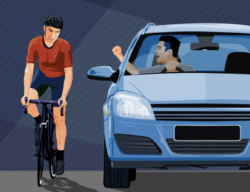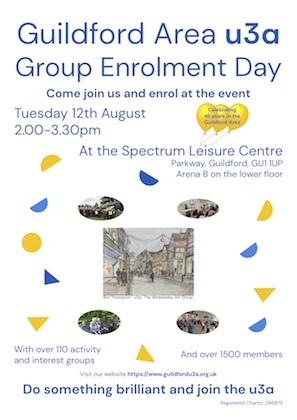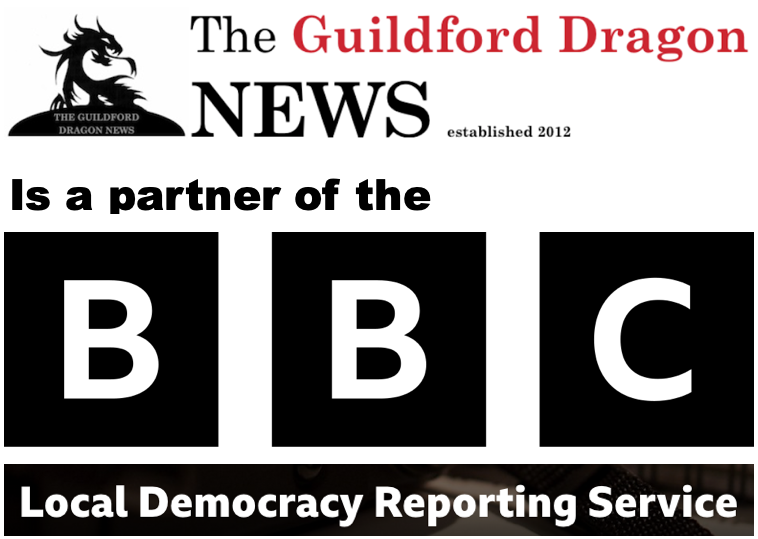- Wednesday, July 30, 2025
- Stay Connected
 Abraham Lincoln
If given the truth, the people can be depended upon to meet any national crisis...
Abraham Lincoln
If given the truth, the people can be depended upon to meet any national crisis...
 Guildford news...
for Guildford people, brought to you by Guildford reporters - Guildford's own news service
Guildford news...
for Guildford people, brought to you by Guildford reporters - Guildford's own news service
Letter: Would Fewer Rules Make for More Road Safety?
Published on: 12 Feb, 2024
Updated on: 16 Feb, 2024
In response to: Conflict on the King’s Highway
The first time I owned a car was in 1970s Jakarta – a huge, filthy, congested city where every type of vehicle and animal competed for road space: cars, lorries, buses, bikes, motorised three-wheeled tuk-tuks, pedalled trishaws, ox-carts, pedestrians, stray animals and much else.
The noise and pollution were overwhelming but serious accidents were rare. That’s because there were no particular rules (or, at least, not ones that people followed) and every manoeuvre involved an implicit negotiation with other road-users, with much eye-contact, hesitation and satisfying little spurts of self-assertion.
I’m not suggesting that anarchy would make safer roads, but driving in modern central London does make me wonder whether piling on ever more rules, more signage and more road markings is a good solution, or just very distracting. I do see some sense in Dutch ideas of street de-cluttering.
As a thought-experiment, imagine what careful drivers we’d all be if we didn’t have to drive on the left.
















Olly Azad
February 13, 2024 at 8:24 am
If smart motorways were used as a yardstick to measure how safe our roads are in the UK, then I’d happily drive along the streets of Jakarta any day of week because there’s nothing smart or safe about them, particularly as they don’t even have a hard shoulder.
There is truth in the argument that so often in this country we’re bombarded with so much traffic rules and regulations than we could ever wish for. As the people in Indonesia continue running the daily gauntlet without proper rules and directions and remarkably few accidents also, so maybe our highways and byways would be much better suited if they could be free from fancy diagrams, over zealous signalling and some words which even the contestants on Countdown might struggle to cope with.
The acronym KISS, ‘keep it short and simple’ should be applied instead when trying to appeal to drivers, cyclists, pedestrians and all creatures great and small as a method to restore road safety and calm on the King’s highway.
Harry Rockingham
February 15, 2024 at 9:33 am
One has to notice the marked improvement in traffic flow every time the lights fail at the Ladymead/Woking Road junction at the bottom of Stoke Park. Everything moves beautifully till they get turned on, then it’s stinking polluted gridlock again. This nation, and Surrey in particular, is obsessed with putting lights everywhere. I cycled from Shalford to Guildford College the other day – 17 sets of lights and gridlocked. It’s madness.
Graham Vickery
February 17, 2024 at 5:51 pm
Having lived and worked in Sweden for many years, I have to agree with David Roberts.
That country pursued a national policy of minimal roadside signage relying at best on road paint. Why? Because the state expected drivers to be self aware and conscious of road conditions and other drivers and pedestrians at all times. Drivers were not managed, dare I say, as “sheep” as this nation’s highways authorities insist on doing.
Indeed during the mid-summer, certainly in the capital city, Stockholm, the traffic lights system was turned of in the cause of “you the driver take charge of yourself!”
UK road laws need to be revised to place the onus of safety on the driver not on the local authority. We could then dispense with 75 per cent of signage that no driver even notices!